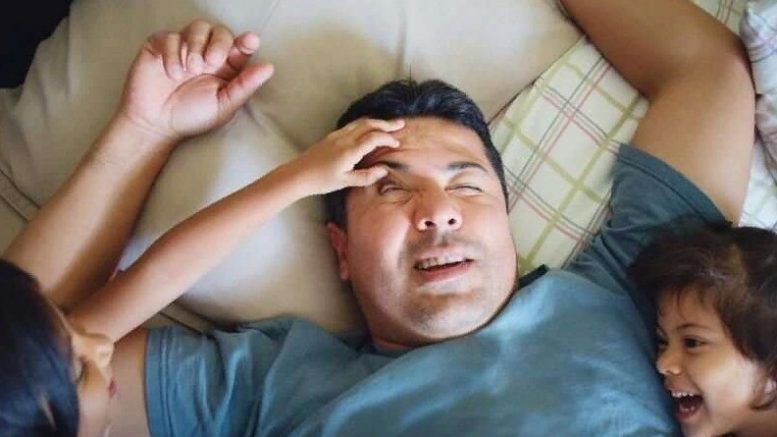Are you prepared to spring forward? These 9 health suggestions will help you adjust to the time shift.
If you’re having trouble adjusting to daylight saving time, you’ll be relieved to find that it’s not just your imagination. It involves a cellular level interaction between the clock, sunlight, and your body.
According to sleep specialists, who consider the time change as a severe health concern, planning ahead to set clocks forward one hour, which happens this year on March 13, could make the transition easier.
Dr. Beth Malow, director of the sleep division at Vanderbilt University Medical Center in Nashville, Tennessee, remarked, “We all miss an hour of sleep from time to time.” But there’s more to Daylight Savings Time than that.
For starters, Malow explained that “it’s not just that one hour.” It has the potential to lead to more.
According to a tiny 2015 research published in the Journal of Clinical Sleep Medicine, high school students lost an average of 32 minutes of sleep on weeknights following the shift, for a total loss of 2 hours, 42 minutes that week.
The impacts of the time change, according to the American Academy of Sleep Medicine, could persist for months. Some of these side effects appear to be quite serious.
“People are more prone to have certain types of cardiovascular events because of the change in time,” said Girardin Jean-Louis, director of the University of Miami Miller School of Medicine’s Center for Translational Sleep and Circadian Sciences.
According to studies, the chances of suffering a heart attack, stroke, or episodes of atrial fibrillation (an abnormal heartbeat) increase following the time shift.
Because of our biology, the change to daylight saving time varies from the jet lag that comes with travel, according to Malow.
She claims that many of our organs have intrinsic clocks. Light is an important signal for those body clocks or circadian rhythms. If you fly from Chicago to New York, you will lose an hour, but the light cycle will shift as well. You don’t get a signal when it’s time to spring forward.
Jean-Louis believes that younger, healthier people will acclimate more rapidly. “It’s a much, much harder chore to try to get back on schedule” for older people or those with medical issues that impact their sleep.
Although some argue for DST for economic and other reasons, Jean-Louis and Malow, along with the American Academy of Sleep Medicine, believe that a year-round fixed time is the healthiest option. “That’s not going to happen anytime soon,” Jean-Louis remarked.
As a result, they issued the following advice:
- Take sleep seriously. Most adults need at least seven hours a night, the Centers for Disease Control and Prevention says. Older and younger people may need more. Yet a third of U.S. adults are sleep-deprived, CDC data show. The shift to daylight saving time can exacerbate that, Malow said.
- Make a gradual shift. Most people don’t adjust until the day of the change, Jean-Louis said. But if you start a few days ahead, shifting bedtime by 20 minutes a day, “it’s easier for you to get accustomed to the new clock.”
- Don’t sleep in on Sunday. It’s tempting, Malow acknowledged. “But really try to get up at your usual time and get exposed to light, because that bright light in the morning will help you wake up, and it will also help you fall asleep easier at night.”
- See the light. Jean-Louis also emphasizes light exposure in the morning. “You could wake up one hour early and take a walk facing east so that you have exposure to the sun as it rises.” Again, starting a few days ahead of time is important, he said.
- Coffee? OK, but be careful. Malow and Jean-Louis are coffee drinkers. And both say it’s great for keeping you alert in the morning. But only drink it early in the day. “If you’re having coffee at about 3, 4 or 5 p.m., that’s just not good,” Jean-Louis said, “because it can trigger a cascade of dysregulated sleep cycles, which influence your ability to get a good night’s sleep.”
- Don’t use alcohol to help you fall asleep earlier. “That can actually interrupt your sleep in the middle of the night,” Malow said.
- Limit screens. The blue light from screens is “kind of like being exposed to sunlight late at night,” Malow said. So limit time looking at them, especially at bedtime. “Try reading a book or do something that doesn’t involve that light. If you absolutely have to be on your computer or phone, use settings that help cut down on the light.”
- Help the kids. Parents of small children know that time changes can be rough. But most of the advice for adults also works for kids, Malow said. “Try to get them to bed a little earlier the few days leading up to it,” she said. And “pay attention to getting them out in the bright light as much as you can once we make the change so they can acclimate.”
- Address persistent problems. If someone has a regular problem falling or staying asleep, or if they have signs of sleep apnea such as snoring or excessive sleepiness, “they really should get it checked out” by a doctor, Malow said. Sleep is important not only for feeling good, “but it can make a tremendous difference on our health, including our heart health.”





